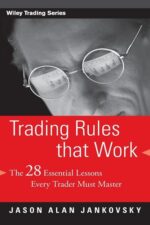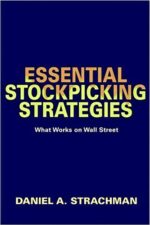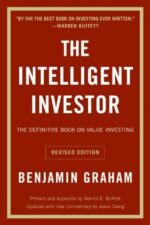The Little Book of Venture Capital Investing: Empowering Economic Growth and Investment Portfolios
$12.24
The Little Book of Venture Capital Investing explains the basic concepts and trends in current venture capital and alternative investments for would-be investors and offers advice and guidance for selecting and monitoring investment opportunities to realize the best possible returns.
Introduction:
Venture capital investing is a lot like the old baseball adage: You win some, you lose some, and some get rained out. There is no secret formula or guaranteed path to success, especially in the field of venture capital investing. Many venture capitalists have lost their entire investment when the once- brilliant ideas they funded foundered in the competitive marketplace or got torpedoed by even greater innovations.
The book is not intended as a textbook on how to raise VC or as a guide to becoming the next Google. I provide an insider ’s view of how VC works and how to best define VC, tying its fascinating history to its transcendent present. I offer additional background into who VC investors are, what their investment strategies are, their VC performance, and the sectors they invested in, as well as the difference geography can make. We explore the multiplier impact of VC investing, both in dollar terms and social impact. We examine the prevailing investment climate, revealing startling data on new start-up growth and challenges. Then we take a look at both the private and listed venture capital investment options available to you so that you too have the ability to become a 1 percenter!
This Little Book outlines a practical field guide to the VC investment process—everything from setting investment criteria to monetizing VC investments. You will find a handy Appendix with a glossary of terms and links to a due diligence checklist and additional resources pertinent to VC investing. With this information you can properly assess the risk-reward relationship of venture capital investing. I believe you will find the insights offered pleasantly surprising.
Contents:
- An Historic Overview of Venture Capitalism
- The VC Industry Today
- The Value Proposition
- Prevailing Investment Climate
- Field Guide for VC Investing Options—Nonlisted
- Investment Options—Listed
- Investment Process—Sourcing and Screening
- Investment Process—Due Diligence and Selection
- Investment Process—Portfolio Construction, Monitoring, and Monetizing
The Little Book of Venture Capital Investing: Empowering Economic Growth and Investment Portfolios By Louis C. Gerken pdf
| Author(s) | |
|---|---|
| Format | |
| Pages | 290 |
| Publication Year | 2014 |
9 reviews for The Little Book of Venture Capital Investing: Empowering Economic Growth and Investment Portfolios
Only logged in customers who have purchased this product may leave a review.










Treasure Shepherd (verified owner) –
This is a must have book for investors in technology as well as technology executives. The author, an experienced venture capitalist and financial expert, lays out the foundations of venture capital investing, concisely and clearly. I recommend this book highly to anyone thinking of investing in or seeking funds from a venture capital fund. Reading this book will be the best investment in venture capital you can make!
Ernesto Estes (verified owner) –
I’m a recent college graduate and am working for a prominent member of Congress. In my role I hear so much about the challenges of finding jobs and about how hard it is to access capital for funding ideas that have the potential to grow into companies that create job opportunities for millions of Americans. This book by Lou Gerken is a great read for anyone interested in turning their own dreams, or the dreams of others by means of investing, into a lucrative business. It is my hope that more understanding of how VCs can serve as a valuable tool for economic growth will lead to a stronger economy and a better country for us all.
Hattie Henderson (verified owner) –
Between my BBA in Finance and my MBA I spent 6 years in business school. I equate this book to venture capital 101. For me there was a lot of information I already knew, but the authors did a nice job of making it interesting with their story telling and the examples they used. If you are thinking about getting into finance, an entrepreneur who is seeking out seed money, or an investor thinking about working with a VC I highly recommend you spend the time to read this easy read. I think it gives you enough background on the subject of venture capital for you to make some sensible decisions without overwhelming you with all the technical information that takes place in the world of venture Capital.
Josephine Salgado (verified owner) –
Makes the history of venture capital investing interesting with stories about various serial entrepreneurs. Never realized how many of the big tech crazes were results of V.C. investing. Great overview of the industry without being overly technical or bogged down. Agreed with the persistent perspective that new businesses are catalysts for economic growth, and how regulatory/governance issues, purposely or not, are hindering small business development currently. Exciting industry to learn about and see the inner workings of. Great starting point for anyone interested in starting your own business, working in the VC industry, or simply curious about the process of how a lot of businesses are funded. Definitely recommend it as an enjoyable and informative read.
Beau O’Neal (verified owner) –
Being a novice investor I have always wanted to have a guide to help me understand the dynamics of the financial community without making me feel inadequate. The Little Book of VC Investing is such a book and will certainly empower me in my evaluations and ultimate decisions.
From my perspective I would recommend it to anyone who wants to advance in making better investment decisions.
Allan Chan (verified owner) –
i buy and read every book connected to Value Investing (Buffett: “What other type of investing is there?”).This book added to my knowledge and will return its cost many many times over just from Chapter One -A historic overview of Venture Capitalism-. I sincerely thank Sacred Traders for suggesting this book, like ,any others; please keep them coming…..
Brittany Glass (verified owner) –
“The Little Book of VC Investing” is a good and clear written overview of the many aspects and impacts that the VC industry has on economic activity, job creation and entreprenuership. It shows a deep industry insight and experience of the author Louis C. Gerken and gives valuable remarks on major financial problems in US and Europe. The book has many good examples of wellknown companies that once started as a VC company and on how the VC industry today is contributing to society. I sure can recommend this book to anyone who is interested in the VC Industry.
Wren Blankenship (verified owner) –
The book is a comprehensive review of the venture capital industry and provides insights for investors on how to participate in it; it also offers interesting advice for fund managers in raising capital and improving the investment process. Lou Gerken is at ease in explaining success stories and failures, and shows how to learn from both. However, one area where the book doesn’t go deep enough is whether investing in venture capita funds is today worth the associated risks: the only statistical evidence offered is a single page summary of returns prepared by Cambridge Associates but those statistics are biased because they do not include the negative returns of the funds that failed and also are deeply affected by the selection of the reference periods and of the benchmarks. If it was possible to access the internal statistics of some of the largest investors, such as CALPERS (more than € 60 billion invested in hundreds of private equity and venture capital funds in a period of 20 years), one could have a truer view of the trend in average returns to investors because they are based on hundreds of investments of different vintages; those statistics normally show that in recent years (i.e. after 2004) the returns have decreased to the point that, considering the risk involved in venture capital and private equity, it may no longer be wise to invest in that sector. The venture capital and private equity professionals, both on the side of the limited partners and of the general partners, obviously do not share that view, which would mean the end of their jobs; they claim that recent results are affected by the J curve (i.e. in the initial life of the fund there are many costs and no exits, and the investments made are valued at the initial book value, thus underestimating –hopefully- the value creation underway) and, most importantly, they claim that all the funds that have been affected by the 2009/10 crisis (i.e. almost everyone) should not be counted in the statistics because of the unprecedented and non recurring situation of the crisis. The common belief is that sooner or later the average returns will match the confortable double-digit levels of 10 years ago; that is a real leap of faith and the book doesn’t explain why it should be so. It is quite possible that today’s external conditions are substantially different than yesterday’s; in the end, making money in an industry (adjusted for risk) depends on the demand/supply in that industry, i.e. whether there is an oversupply of capital chasing a limited supply of deals, and the size/duration of the unbalance. Up to 2008 there was an irrational exuberance that allowed many venture capital funds to be quite successful and the big question is if that condition is present today or will continue in the future.
Gerken however offers an interesting insight on how to select the fund managers that have the highest probability of making money even if the industry itself doesn’t offer the expectation of returns higher than the cost of capital. That part is the most valuable and original contribution of Gerken, and it quite credible because it is based on his successful professional experience.
Ronald Bennett (verified owner) –
I devoured the book in a weekend, and loved the way it gives a complete and very clear picture of the business.
This book is not only a must-read for those aspiring to a career in venture capital, but also for entrepreneurs seeking to raise venture capital. Entrepreneurs (myself included) ordinarily do not appreciate the challenges unique to VCs, namely the struggle involved in raising a fund, appraising opportunities across a wide-range of technologies, and overseeing portfolio companies. “Venture Capital Investing” book does an excellent job in terms of helping entrepreneurs understand those challenges. Again, I think it is an invaluable resource for those in the start-up community, regardless of which side of the table you sit on!